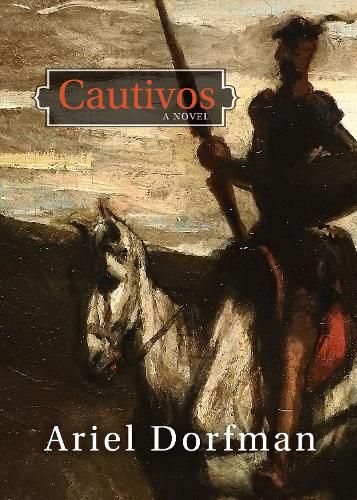Readings Newsletter
Become a Readings Member to make your shopping experience even easier.
Sign in or sign up for free!
You’re not far away from qualifying for FREE standard shipping within Australia
You’ve qualified for FREE standard shipping within Australia
The cart is loading…






This short novel is about confinement, both of the mind and of the body, and therefore also about liberation.
Set in the last years of the 16th century, Cautivos is a meditation on writing, writers, and creativity. Then as now, Islam and Christianity were at loggerheads and women found themselves playing new roles, and imprisonment or worse was society’s answer to everything from murder to dissent.
Writer/activist Ariel Dorfman imagines for us scenes from the picaresque life of Miguel de Cervantes, a man who wrestled as intensely with the contradictions implicit in writing fiction-how can one write something real if it is labelled fiction, but in fact how can one write anything real unless it is fiction?-as any scribbler who followed him in the centuries since. Cervantes, of course, was the soldier, spy and adventurer who in 1605 gave the world Don Quixote, often described as the first modern novel, a book that has influenced Western culture perhaps more than any other book save the Bible.
In Cautivos, we are witness to the birth of the spirit of Don Quixote de la Mancha: an honorable if doomed figure whose travails mirror those of Miguel de Cervantes himself. Few writers have written more lovingly about their subjects than Cervantes wrote about his Quixote, and few are better positioned to appreciate the spiritual journey of Cervantes himself than Ariel Dorfman, who-not unlike Cervantes-has been alternately hounded and feted by those in authority.
$9.00 standard shipping within Australia
FREE standard shipping within Australia for orders over $100.00
Express & International shipping calculated at checkout
This short novel is about confinement, both of the mind and of the body, and therefore also about liberation.
Set in the last years of the 16th century, Cautivos is a meditation on writing, writers, and creativity. Then as now, Islam and Christianity were at loggerheads and women found themselves playing new roles, and imprisonment or worse was society’s answer to everything from murder to dissent.
Writer/activist Ariel Dorfman imagines for us scenes from the picaresque life of Miguel de Cervantes, a man who wrestled as intensely with the contradictions implicit in writing fiction-how can one write something real if it is labelled fiction, but in fact how can one write anything real unless it is fiction?-as any scribbler who followed him in the centuries since. Cervantes, of course, was the soldier, spy and adventurer who in 1605 gave the world Don Quixote, often described as the first modern novel, a book that has influenced Western culture perhaps more than any other book save the Bible.
In Cautivos, we are witness to the birth of the spirit of Don Quixote de la Mancha: an honorable if doomed figure whose travails mirror those of Miguel de Cervantes himself. Few writers have written more lovingly about their subjects than Cervantes wrote about his Quixote, and few are better positioned to appreciate the spiritual journey of Cervantes himself than Ariel Dorfman, who-not unlike Cervantes-has been alternately hounded and feted by those in authority.